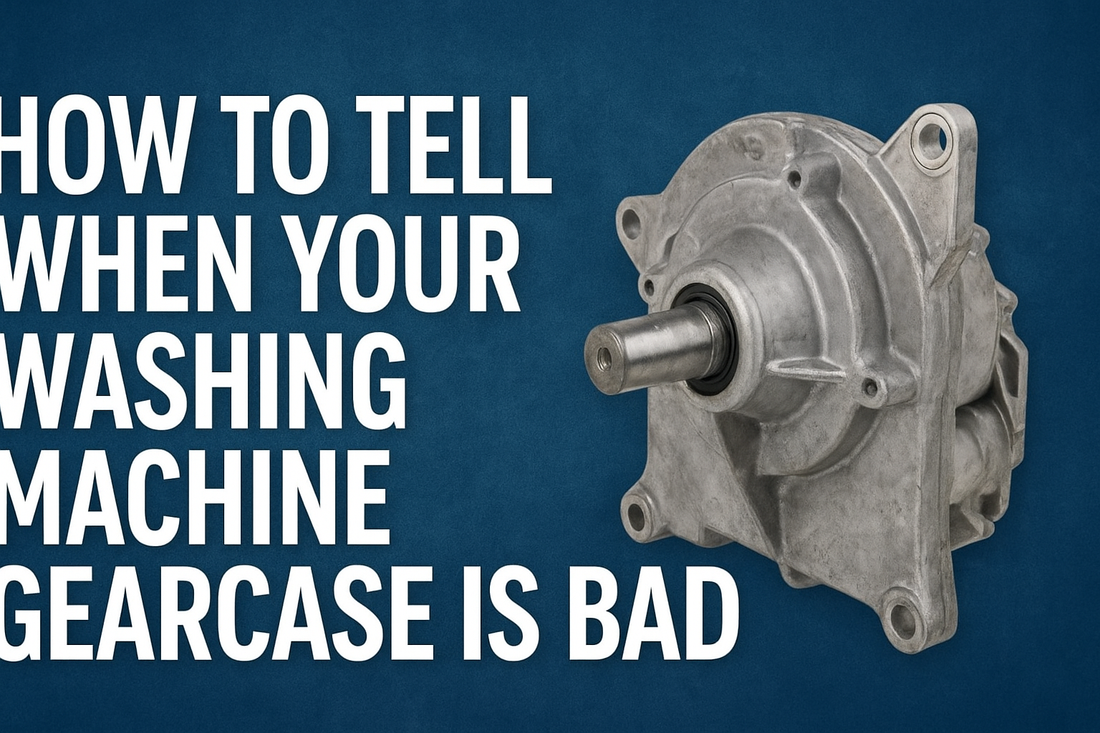
How to Tell When Your Washing Machine Gearcase Is Bad
Share
Your washing machine’s gearcase, also called the transmission, plays a vital role in powering the agitation and spin cycles. When it begins to fail, your washer can lose efficiency, make unusual noises, or stop functioning altogether. Knowing the signs of a bad gearcase can help you address the problem early and avoid bigger repair costs down the line.
Common Signs of a Bad Gearcase
1. Loud Grinding or Clunking Noises
A failing gearcase often produces loud grinding, clunking, or knocking sounds during the wash or spin cycles. This is caused by worn gears or internal components struggling to engage properly.
2. Washer Not Spinning or Agitating
If your washer fills with water but doesn’t agitate or spin, the gearcase could be stripped or damaged. Since it’s responsible for transferring power from the motor to the drum, a failure here can stop those movements completely.
3. Leaking Oil Under the Washer
The gearcase contains lubricating oil. If you notice dark oil stains or puddles beneath your washing machine, it’s a strong indicator that the gearcase seals have failed, and the transmission is breaking down.
4. Burning Smell or Overheating
When the gearcase struggles to operate, it can cause friction and heat. This sometimes leads to a burning smell coming from your washer, which should be addressed immediately to prevent further damage.
5. Drum Not Moving Even with Motor Running
If the motor runs but the washer drum doesn’t turn, the gearcase may no longer be transferring power. This is a clear mechanical failure that usually requires replacement.
Should You Repair or Replace the Gearcase?
Replacing a washing machine gearcase can be labor-intensive and often costs a significant portion of the price of a new machine. However, for higher-end washers or machines that are otherwise in good condition, installing a new OEM gearcase is often worth it.
-
Repair: If your washer is fairly new, under warranty, or a high-end model, replacing the gearcase may extend its life for years.
-
Replace the Washer: If your washer is older, has multiple issues, or the repair cost is close to the price of a new unit, it may be better to upgrade.
Preventing Gearcase Issues
-
Avoid overloading your washer, as this puts unnecessary strain on the transmission.
-
Keep your washer level to prevent uneven stress on the gears.
-
Schedule routine maintenance checks, especially if you notice unusual noises or performance issues.
Final Thoughts
The gearcase is one of the most important mechanical parts of your washing machine. Catching the warning signs early—like grinding noises, oil leaks, or failure to spin—can help you decide whether repair or replacement is the right move.
Visit PRS Parts Inc. at 540 Lagoon Dr. for authentic OEM replacement gearcases and expert guidance to keep your washer running smoothly.
